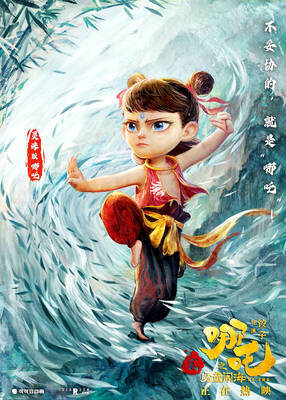For many gay people, family is the most difficult part to deal with. The Taiwan Tongzhi Hotline Association provides counselling and support for gay people and their parents. On Thursday last week, before Mother’s Day, the association held a press conference during which parents of gay children had been invited to share their experience of changing their views about having gay children and how to support them.
According to the association’s statistics, after parents discover that their children are gay, the five most common five questions are: Can my child be converted back to being straight again? Will my child get AIDS? What will happen after my child gets old? Did I do something wrong? How do I explain this to the grandparents? What will my relatives think of me? If, because of these questions and the ensuing pressure, parents start reprimanding the children, restricting their freedom of movement or controlling their friendships, the results might be just the opposite of what they try to achieve and the parent-child relationship could become more strained.
At the press conference, the association invited a mother surnamed Lin and a mother by the name of Judy, both of whom are parents of gay children, to share their personal experience. Lin said that about 10 years ago, after she discovered that her son was gay, she blamed herself and cried in agony for seven days. Then she changed her mind, “How does crying like this help him? Does crying do me any good?” She then decided to offer support to her son and made an active effort to get to know her son’s boyfriend, and even went with her son to see what a gay bar looked like.

Photo courtesy of Warner Music
照片:華納音樂
Lin said that parents also come under a lot of pressure from within themselves and from other people. As an experienced parent of a gay child, she decided to spend time with other parents of gay children, thereby helping other gay children. Judy, on the other hand, urged parents to “wait, if your heart is not strong enough yet.”
(Liberty Times, translated by Ethan Zhan)
對於許多同志而言,家庭是最難過的一關。台灣同志諮詢熱線協會提供同志父母及其子女諮詢與支持。同志熱線於上週四母親節前舉辦記者會,邀同志母親現身說法,分享如何轉念及如何支持同志孩子。
同志熱線統計,家長發現孩子是同志後,最常見的五大疑問是:「我的孩子能不能變回異性戀來?」「我的孩子會不會有愛滋?」「未來老了怎麼辦?」「是不是我做錯了什麼?」「我該如何跟爸媽或公婆交代?親戚會怎麼看我?」若因這些問題與壓力而責備孩子、管制行動、限制交友,則可能適得其反,導致親子關係更緊張。
記者會現場,同志熱線也邀請林媽媽、Judy媽媽等兩名同志母親現身說法。林媽媽說,十多年前,她發現兒子是同志之後,曾自責地在床上痛哭七日;之後轉念「這樣哭,對他有什麼幫助?對我有什麼好處?」於是決定支持兒子,並積極認識兒子的男友,甚至陪兒子去看看什麼是Gay Bar。
林媽媽說,家長其實也承受很多內外的壓力;身為過來人,她決定陪伴其他家長,也藉此幫助其他同志孩子。Judy媽媽則勉勵其他同志家長,「如果內心還不夠強大,就得等待」。
(自由時報記者何世昌/台北報導)

>> Bilingual Story is a fictionalized account 雙語故事部分內容純屬虛構

You enter an old-fashioned detective’s office. The door locks with a click as a radio buzzes: “Rookie detectives, a priceless diamond is missing! Solve the case in one hour.” The room is filled with clues — photographs, coded messages and secret compartments. As the grandfather clock ticks, you and your friends must work to unlock the secrets. This is what escape rooms are all about — immersive adventure games where you solve puzzles and escape the themed setting within a time limit. The concept of “escape rooms” dates back to early first-person video games. In 1988, John Wilson introduced

A: China’s animated blockbuster “Ne Zha 2” also smashed a box office record recently. B: It’s No. 7 among the world’s best-selling films, grossing more than US$2 billion globally. A: I t has even become the world’s highest-grossing animated film, while the political metaphors in it are causing controversy. B: But who is Ne Zha anyway? A: Ne Zha, often spelled as “Nezha,” is actually a mythical teenage deity with superpowers. A: 中國動畫片《哪吒2》最近也打破紀錄。 B: 該片已衝上影史票房排行榜第7名,全球狂賣超過20億美元。 A: 聽說它甚至是全球最賣座的動畫片,影片中的政治隱喻卻引爆爭議! B: 但哪吒是誰? A: 哪吒的名字常被拼成「Nezha」,是神話中具有超能力的青少年神明。

A: Were there any highlights at the Oscars this year? B: With 13 nods, French director Jacques Audiard’s “Emilia Perez” broke the record for most Oscar nominations earned by a non-English film. A: Wow, it broke the record of 10 Oscar nominations set by Taiwanese director Ang Lee’s “Crouching Tiger, Hidden Dragon.” B: On the eve of the Oscars, Lee was honored with the Lifetime Achievement Award at the Directors Guild of America (DGA) Awards. A: It seems that Hollywood has finally become more diverse. A: 今年的奧斯卡獎有什麼亮點嗎? B: 法國導演賈克歐迪亞的《璀璨女人夢》榮獲13項提名,打破了非英語片紀錄! A: 哇打破了台灣導演李安的《臥虎藏龍》10項提名紀錄。 B: 李安則在奧斯卡前夕,獲頒美國導演工會「終身成就獎」。 A: 看來好萊塢終於比較多元化啦。 (By Eddy Chang, Taipei Times/台北時報張迪)